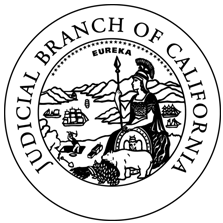Originally published on Forbes.com June 5th, 2014
The Court of Appeal of California Second Appellate District has just upheld the Electric Program Investment Charge ruling among other things that the charge does not constitute a tax. The case is Southern California Edison Company (SCE) v Public Utilities Commission (PUC) (Sorry I can’t find a free link).
The EPIC charge is a surcharge on electric bills that is used to fund renewable energy research, development, and demonstration projects with the aim of making electricity service cheaper, safer, and more reliable. SCE was challenging the decisions by PUC that created EPIC. SCE is one of the three investor owned utilities required by PUC to collect EPIC.
SCE attacked the charge based on theories concerning PUC’s lack of authority and that EPIC was a tax. The Court ruled that PUC had the authority to create the program and that EPIC is a valid regulatory fee, not a tax.
Public Utilities Commission Has The Power
Given the PUC’s vast, inherent power to take any action that is cognate and germane to utility regulation, supervision, and rate setting, unless specifically barred by statute, there is no question that the PUC has the inherent authority to create EPIC and to impose fees necessary to carry out that program. EPIC directs electric utility corporations to invest in research into, and development of, renewable electric energy sources and technologies designed to lower costs, increase safety, and improve reliability of electricity service for the benefit of these corporations’ own customers, and fixes a surcharge on those same ratepayers to recover the cost.
It’s Not About Global Warming – Mostly
An implicit indication of PUC’s power to create EPIC was the legislature’s squashing of another initiative – the California Institute for Climate Solutions. In 2008, a bill was passed that provided
The Public Utilities Commission shall not execute an order, or collect any rate revenues, in Rulemaking 07-09-008 (Order Instituting Rulemaking to establish the California Institute for Climate Solutions), and shall not adopt or execute any similar order or decision establishing a research program for climate change unless expressly authorized to do so by statute.
The Court noted that:
Unlike the CICS, EPIC is not a research program for climate change. It is a program to fund electricity-related research and development activities to benefit the electricity corporations’ ratepayers. That some approved research projects may result in innovations that reduce greenhouse gases, does not transform EPIC into a research program for climate change prohibited by Assembly Bill No. 1338. 11 Accordingly, although it prohibited the CICS, Assembly Bill No. 1338 does not even begin to bar EPIC.
And It Is Not A Tax
According to Proposition 13 passed in 1978 any tax increase has to be approved by a two-thirds vote of the Legislature. Proposition 26, passed in 2010, adjusted the meaning of “tax” to include certain fees and charges. The burden of showing that a charge is not a tax is on the state or the locality. SCE argued that EPIC is a tax. The Court noted that the distinction between a tax and a fee can be a bit blurry, but found that EPIC falls on the fee side of the blur.
The PUC has demonstrated that the fees charged in connection with EPIC do not exceed that necessary to cover the RD&D into renewable energy as the fees mirror the amounts in the Public Goods Charge minus the energy efficiency component and the Legislature has since approved that amount. Furthermore, the PUC demonstrated that EPIC bears a reasonable relationship to the ratepayers’ benefits because the charge is designed to benefit the utility corporation’s ratepayers only by making their electricity cheaper, safer, and more reliable. Thus, the fees charged are directly “linked to the activities” performed under EPIC and the scope of EPIC is related to the “overall cost of the governmental regulation.”
SCE argues that EPIC is intended to benefit more than its ratepayers and asserts the PUC has declared that the program addresses statewide energy policy and social objectives. However, the possibility that some EPIC research may incidentally provide a social benefit to the public at large does not transform EPIC into a tax where a discrete group, namely the utility corporations’ ratepayers, is specifically benefitted.
Who To Root For?
I have not been able to find any coverage at all on this case and I am having a hard time deciding whether I like the decision or not. Apparently, there are some safeguards in place to make sure that the benefits created by the research will flow back to the ratepayers who funded them. On the other hand, it really does feel a bit like a stealth tax.
You can follow me on twitter @peterreillycpa.































































































